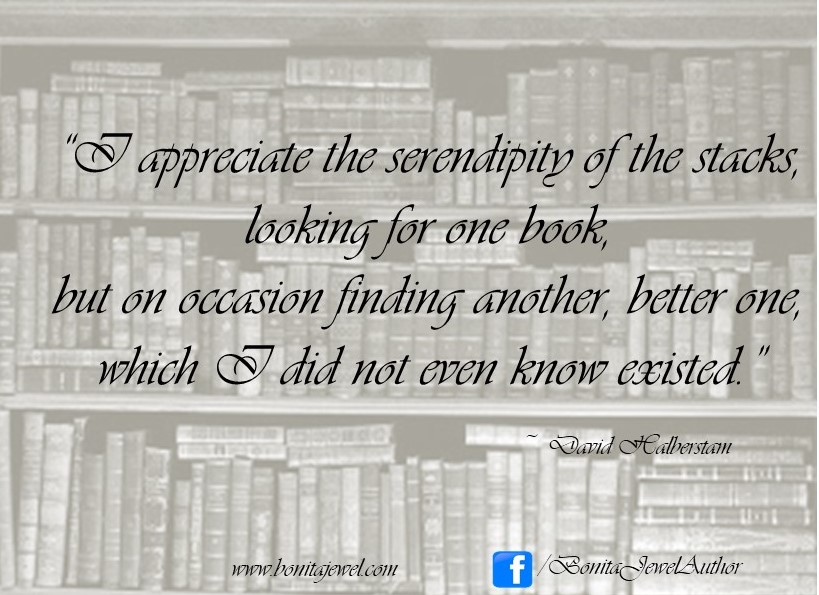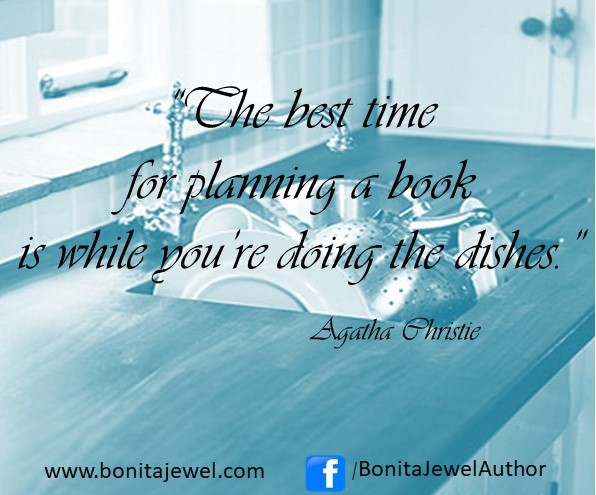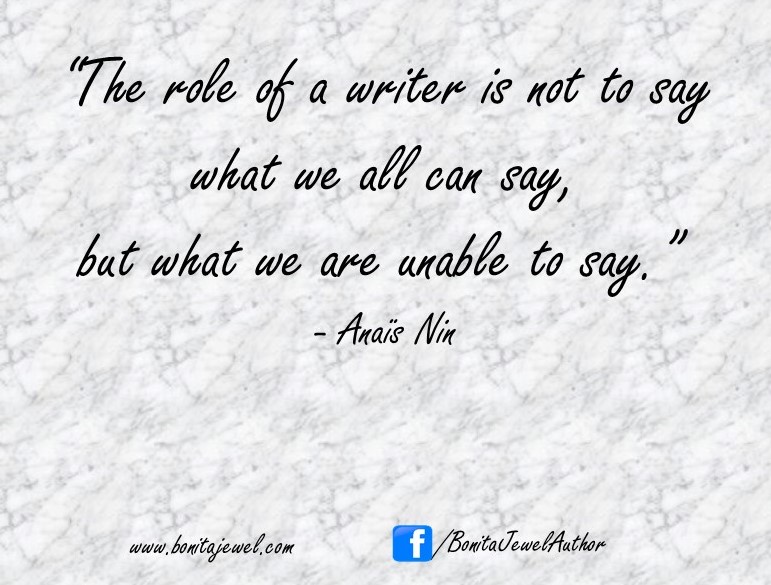First off, thank you for taking the time to read (or even just skim) this post on how to become a better writer.
I know there’s lots of material out in what a friend of mine calls the worldwide webs …
Just searching the phrase “How to become a better writer” on Google returns about 844 million hits in 0.64 seconds.
That’s an insane number! Talk about decision fatigue deciding which one to read.
Or if you wanted to glance through all of them…
If you spent exactly one minute reading each article on how to become a better writer, it would take you 1,605 years, reading day and night, to get through the list.
All that to say, thanks for choosing this post out of the 844 million options available.
And if you’re just here for the “quick skim,” this is the shortlist on ways to grow into a better writer:
- Read Widely
- Read Deeply
- Conduct Research
- Seek a Writing Community
- Interact with “Better Writers”
- Teach Someone Else about Writing
- Don’t Stop at the First Draft
- Give Your Writing Time to Grow
- Get an Editor to Improve in Your Writing
- Don’t Completely Rely on an Editor to “Fix” Poor Writing
- Educate Yourself about the Craft of Writing
- Find Your Writing Rhythms
- Have Fun Writing!
This is a bit of a longer post.
Feel free to skip around and focus on the writing tips that stand out to you more.
1. Read Widely

I don’t think it’s an exaggeration to say that the single most important way to become a better writer is to be an avid reader.
I have never heard of a prolific and talented author who hated to read …
But I have read about plenty of great authors who were avid readers, students of knowledge, and loved learning new things via the things that they read.
Show me an author who says, “I really hate reading but I sure do love to write” …
And I’ll show you an author who is either not so great at the craft or who hires someone else to do extensive ghostwriting and developmental editing for them.
(And I have met some authors like that in the scope of my work as an editor.)
If you want to become a better writer, read.
And read widely.
- Read fiction and nonfiction.
- Read memoirs and poetry and biographies.
- And even if your focus is nonfiction or technical writing, read a novel now and again.
2. Read Deeply

In reading deeply, what I mean is this:
Read as much as you can in the genre or genres in which you choose to write.
If you’re writing how-to or self-help books on a specific topic, read a lot of material on that topic:
- Books
- Articles
- Blog posts, etc.
If you’re writing fiction and your genre is steampunk, find as many good steampunk novels as you can and read them.
One experienced agent I encountered at a writer’s conference recommended reading 25 books in your genre and 25 books outside of your genre for every book that you write.
And yes, that does mean a ratio of reading 50 books to writing one. (Hence the first point on reading widely.)
Don’t have a big book budget? Head to a library!
More on that in the next point …
3. Conduct Research
I remember reading an interview by an author who writes historical fiction.
She stated that she has half a dozen thick hanging folders for every novel she writes.
All. Research.
When she writes about other nations, she tries to go there as well to experience firsthand what life is really like in those places.
While not everyone has the budget to hop on a plane and spend a month in Tuscany because that’s where their next novel is taking place, everyone (or nearly everyone) has the capability of researching online.
And there’s more information now than ever before on every (and I mean every) subject under the sun.
That said, I would not recommend only doing online research if you want to become a better writer.
Go to a library and check out entire books.
And read them.
These days, we tend to skim material and then consider ourselves educated on the topic …
What will set you apart as a writer who knows your stuff?
Immersing yourself in knowledge by reading deeply. And reading old stuff as well as the newer articles that are available online.
4. Seek a Writing Community
I admit that this one doesn’t come naturally to me.
I’m a solitary person.
On top of that, the act of writing is something that you generally do in solitude.
I think much better and create much better when I have space to myself to think deeply about something before I get down to writing about it.
So then why the recommendation on seeking community?
Because some of the best writers I know do it or have done it, and it is something I find myself longing for more and more as I go through life as a writer.
The majority of my friends and acquaintances are not writers. While they’re great people, there’s just something about connecting with another writer … or even an aspiring writer.
As with any other creative act, it helps to bounce things off people who are dealing with the same creative medium. To communicate (and sometimes vent) about the struggles and challenges and the high points of the craft of writing.
Hutchmoot: Homebound and the Rabbit Room Community
One of the main things inspiring me to pursue community was attending Hutchmoot: Homebound.
For years, I’ve been following The Rabbit Room and have read pretty much everything I can get my hands on by their writers, specifically Andrew Peterson, A. S. Peterson, Helena Sorensen, and a really cool book recently released by Jamin Still.
I’d wanted to attend their Hutchmoot writing conference in Tennessee for years, but it was just too far and too expensive for me to travel all that way and be away from my family.
But then COVID-19 happened and then Hutchmoot: Homebound happened and it was one of the most healing and centering and wonderful experiences during the entire year of 2020.
And they are holding it online again in 2021.
I plan on attending this year, and if you are an aspiring writer (or an experienced writer), and would love to interact with other creatives, The Rabbit Room is a place that “cultivates and curates stories, music, and art
to nourish Christ-centered communities for the life of the world.”
I’m sure theirs is not the only writing community out there, so find yours.
And if you can’t find one, create one!
5. Interact with “Better Writers”
Along the lines of seeking out of writing community, try to find people who are interested in similar subjects and genres is you or who write from a common worldview …
Yet who are also a little more advanced in the writing craft.
This will inspire you to keep on learning and honing your craft. After all, if they’re just a little better, then if you get just a little better at writing, you might just pass them up one day.
Kidding.
While they might be better at some aspect of writing (like perhaps world-building), you might be better at another aspect such as research.
And you can always help each other.
6. Teach Someone What You Know about Writing

Speaking of helping each other, find someone whom you can teach about writing.
It might be your own child, or grandchild, or a nephew or niece who is interested in writing but doesn’t have someone in their immediate family who has that skill.
- Encourage them with a note on Facebook.
- Send them a text and ask them to send you their work.
- Offer them some helpful suggestions.
- Read a book on the craft of writing together.
- Ask if they have friends who are also aspiring writers.
- See if they’d like to have a writing Meetup somewhere, sometime.
Not only will this encourage and help them become better writers, but by pouring into another person what you know, it forces you to consolidate your knowledge.
To verbalize what you know about writing to another person, you have to understand exactly what it is you’re talking about.
There’s really nothing like teaching someone else what you know to help you really grasp that concept and become a better writer in the process.
7. Don’t Stop at the First Draft
A few years ago, as part of my internship with The Normal School while working towards an MFA in Creative Writing, I interviewed author and essayist Dinty W. Moore.
In the research I did before the interview, I noticed another interview he had done where he mentioned his average essay goes through 40 drafts before being published.
40 drafts!
His work is seamless and highly readable, but sometimes it takes 40 drafts to make that happen.
Not every writer needs 40 drafts.
J. R. R. Tolkien famously spent years working on The Lord of the Rings, including histories and languages and world-building, yet many believe that C. S. Lewis basically wrote and did only a little revision before publishing The Chronicles of Narnia.
What is not as well known is that Lewis composed a lot in his mind.
Some people do a lot of writing in their head … revising and working with the material before ever getting it out on paper.
When that is the case, then not as much editing is going to be needed.
Still, nobody should publish a first draft.
Anne Lamott famously wrote about it in her writing book, Bird by Bird, in the chapter titled “S***** First Drafts,” which pretty much sums up what most first drafts look like.
Do your craft (and your readers) a favor and don’t stop at the first draft.
8. Give Your Writing Time to Grow

This point is somewhat along the same lines but requires its own focus.
You want to give your material time to grow.
And while this won’t happen in a first draft, it’s might not happen if you rewrite the second draft later that afternoon or the very next day.
Some creative acts really do require time.
Let’s say you write a draft of a novel during a season where you’ve been reading a lot of a certain author …
Or maybe you’re going through something in your personal life and this heavily influences your writing.
But then you come back to it several months down the line and you see ways to improve it that you just could not have seen when you were in that headspace of a few months earlier.
Sometimes we are writing under a deadline and need to get out a publishable draft sooner than ideal…
But more often than not, the deadlines we impose are our own, especially for self-published authors, and we need to give ourselves more time to allow the work to grow into something better.
I write more extensively on this in my post, “How do you know when your work in progress is ready?”
While I understand I am on the “waiting a little bit too long” end of the spectrum, I would rather do that than publish something that just isn’t ready and isn’t the work that it could be if I had given it the time that it needed to develop.
9. Hire an Editor as Another Set of Eyes
While you do everything you can to make your work the best it can be, I still recommend that you find an editor to work with.
I’m not just saying that because I am an editor (and writers who need editors are my bread and butter).
I am saying this because getting help editing your work can actually help you become a better writer.
I am a member of several writing groups on Facebook, and many new writers who ask questions or post comments seem to have this theory:
Grammarly is enough.
Well, It isn’t.
Grammarly is a very helpful tool for catching things that are easily missed and for creating a decent and sensible piece of work.
But Grammarly (or any other editing software) doesn’t catch everything.
And Grammarly is not a real person with feelings and emotions and a brain wired to understand and appreciate the patterns of story. It’s in our DNA. We are storyseekers.
So while editing software may be able to tell you the difference between there and their and they’re, it cannot do the work of an actual editor.
Honing the Craft of Writing with an Editor
I’ve been freelance editing for over 11 years now, and in the writing and communications business for seven years before that, so I’ve been honing the craft of writing for close to 20 years.
But before I publish a work, I will have someone look over it and make sure that I haven’t missed anything.
I would consider myself a capable writer.
I’ve worked on over 300 unique writing and/or editing projects, fiction and nonfiction, ghostwriting, organizing, compiling and anthologizing, proofreading and line editing and developmental editing.
While I will publish blog posts without getting an editor, as far as a full-length work, such as a novel (or a book of creative essays and poetry on the names of Jesus), I will not even attempt to publish them until it has been edited and proofread by another professional.
Getting the help of an editor really is that important.
Also, if they work in Microsoft Word, using track changes (which is my preferred approach to editing, although I also edit in Google Docs), guess what?

You can see every edit made.
- Every comma added.
- Every word changed.
- Each paragraph revised.
- And every comment made.
What does this mean?
It means that if you keep careful track of the edits they do, you will learn what kind of writing errors you are making and where you need to improve …
And incorporate those new skills into your next book.
Boom!
Better writer.
10. Don’t Completely Rely on an Editor to “Fix” Poor Writing
For the most part, clients I’ve worked with are capable writers who basically needed someone to do a final review of their work.
Sometimes developmental editing was needed, but they were still working with their material to make it as good as they could. (And sometimes “as good as they could” meant hiring an editor, and that’s okay.)
But the occasional client needed far more than a simple line edit …
… yet that was all they wanted and all they thought their work needed.
There have been a couple occasions where I gently recommended that an author spend a little more time on their work before self-publishing it, or perhaps get a deeper level of editing.
They didn’t want to put forth the time, effort, or finances to make their work better. They had no desire to become a better writers.
And they did not do their work, themselves, or their readers a service by settling.
What is more, they expected that with a simple once-over, I could make their work publish-ready.
A first draft, even having gone a round with an editor, is rarely going to be publishable.
An editor – as helpful as they can be – cannot completely fix 100,000 words of poorly written grammar, unorganized material, and telling instead of showing … unless you have hired them for a rewrite or a substantial developmental edit.
This might sound harsh, but I really can’t say it more clearly.
The language we speak and the words we use to speak it are a gift.
And as writers, it is our responsibility to hone the craft and utilize the gift of these amazing words to the best of our ability.
To do our part to create more beauty and meaning in the world.
11. Educate Yourself about the Craft of Writing

In addition to reading articles, posts, and books on the craft of writing (and yes, you should be reading all those things), find other ways to learn more about the craft of writing and storytelling:
- Take a class.
- Sign up for a workshop, whether a local workshop in your community or one online.
- Get a writing coach.
If you are a capable writer now, this will only make you into a better one.
While I had been writing and editing for years, I learned so much while earning my MFA in Creative Writing. I learned from every essay workshopped and every poem I read.
No, you don’t have to get a degree in writing.
For me, writing and storytelling is my lifelong focus; I got the degree not only for my own writing but also so I can help others become better writers.
But while you might not get a degree, you can still learn a lot at a conference, a writer’s workshop or retreat, or a local or online class.
That said, don’t spend hundreds of dollars for a writing workshop with the first writing guru you see advertising on Facebook.
If they tell you that they know the one secret to making money with your writing or writing the perfect novel or writing the next bestseller, it’s a red flag.
There is no single secret …
… unless that single secret is hard work and practice and continuing to learn about writing every way you can.
(And that’s for free.)
12. Find Your Writing Rhythms

For much of my life, I was an evening person.
- I studied at night.
- I wrote at night.
- And I ate lots of popcorn at night.
That is beginning to change. I am finding myself better able to focus on creative writing and other creative projects in the morning. (I still eat popcorn at night.)
But rhythms for writing don’t only refer to time of day.
It could be a weekly rhythm or a seasonal rhythm.
I am always finding myself inspired with new ideas in the autumn because the summer in the San Joaquin valley is just so hot and it’s hard for me to be inspired with new ideas when I’m just trying to survive 110° weather.
But the summer is when I have more time to write because I’m not teaching my children.
As a homeschool mom, I also have to work with what I have.
So, find your writing rhythms – whether it’s:
- Writing all morning on a weekend
- Writing for an hour every evening
- Or an hour every morning
- Heading out of the city for a week-long writing stint.
And yes, that’s something I would love to do, so if you manage to plan it, please invite me along. (We can write a lot and eat a lot of popcorn.)
13. Have Fun Writing!
Writing is work.
If you’re writing creative essays or memoirs, you’re often dredging the depths of your soul or searching through memories or dealing with things that you had let go to rest a long time ago.
If you’re writing fiction or nonfiction, you often have to do a lot of research.
And of course, there is the work of just finding the best way to say something.
And the best way of finding the best way to say something does not involve the thesaurus. I love a thesaurus as much as anyone else, but the truth is no two words are exactly alike.
So, do yourself a favor and don’t just randomly find a synonym for another word just because it’s longer and looks better.
Back to the main topic:
Writing is work and it can be exhausting.
So, what do we do about that?
You decide to have fun writing.
Mix it up a little!
Write something you’ve always wanted to write but never decided to try.
- If you usually write informational or self-help books, try writing a poem.
It can be a limerick if you get intimidated by the deep poetry of sonnets and free verse.
- If you usually write long historical fiction, try writing some flash fiction.
- If your work is usually set in this world, try a bit of world-building.
Now it may not be publishable, but maybe it’s a story you can tell your children at night …
Or maybe it’s something you realize you love so much that you decide to start publishing it under a pen name or end up going to a conference on that theme.
Whatever it is and whatever it takes, have fun!
Have Fun with Where and How You Write

This might also not be having fun in what you write but how and where.
If you can, try going on a writer’s retreat or get an Airbnb with a few friends (they don’t all have to be writers) and go out of town for a few days and just focus on your respective creative projects.
Or do a writing stint with a friend or family member and then reward yourself at the end if you reach your writing goals or required word count.
You could also participate in a larger writing goal with a community such as Nanowrimo.org which not only does National Novel Writing Month in November but also various writing camps in other months.
Get in on the action and join a community.
Have fun with other writers and with yourself in the act of writing.
Eat popcorn while you write.
Or drink chai.
Or listen to the rain if it’s falling outside and let that take your soul to new creative spaces as you write.
Closing Thoughts
If you made it through this entire article …
Thanks for sticking around, and I really hope it has been helpful to you…
And that it will be helpful as you continue to hone and develop the craft of writing.
Now, you don’t have to implement all these writing tips, … and definitely not right away.
But try to decide on at least one thing that you will try out right away.
Like reflecting on your writing rhythms.
Or seeking out a writing community.
Or stopping by your local library and reading widely, deeply, and conducting research, all in the same day!
But do have fun.
Enjoy the “swirl and the swing” and the wonder of these words we use.

2 thoughts on “13 Tips on How to Become a Better Writer”
Comments are closed.